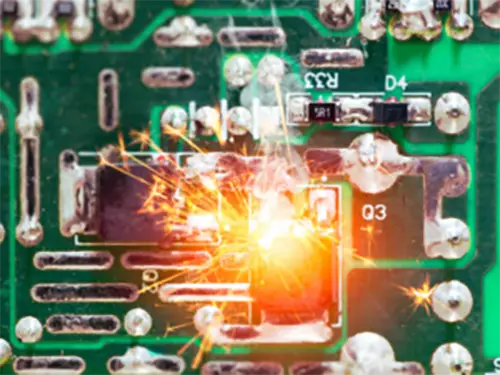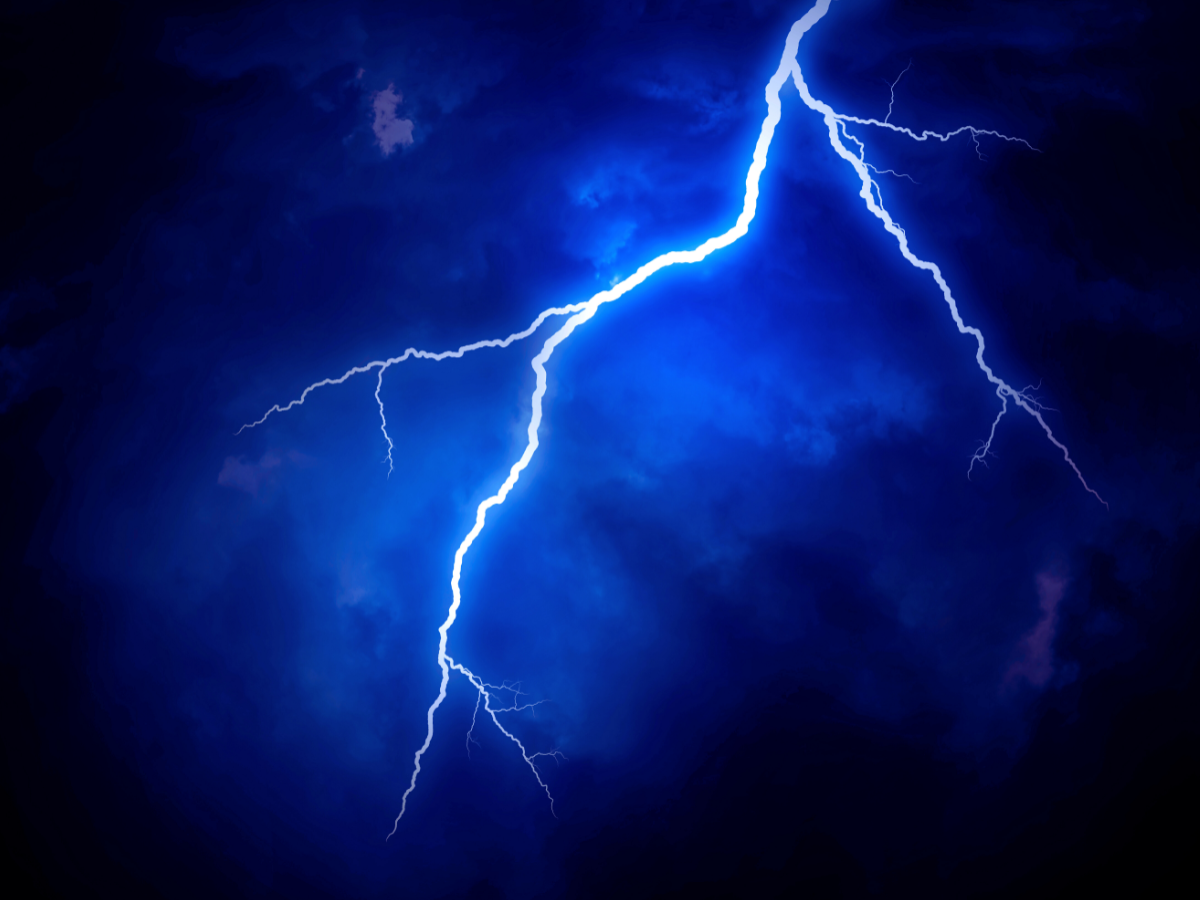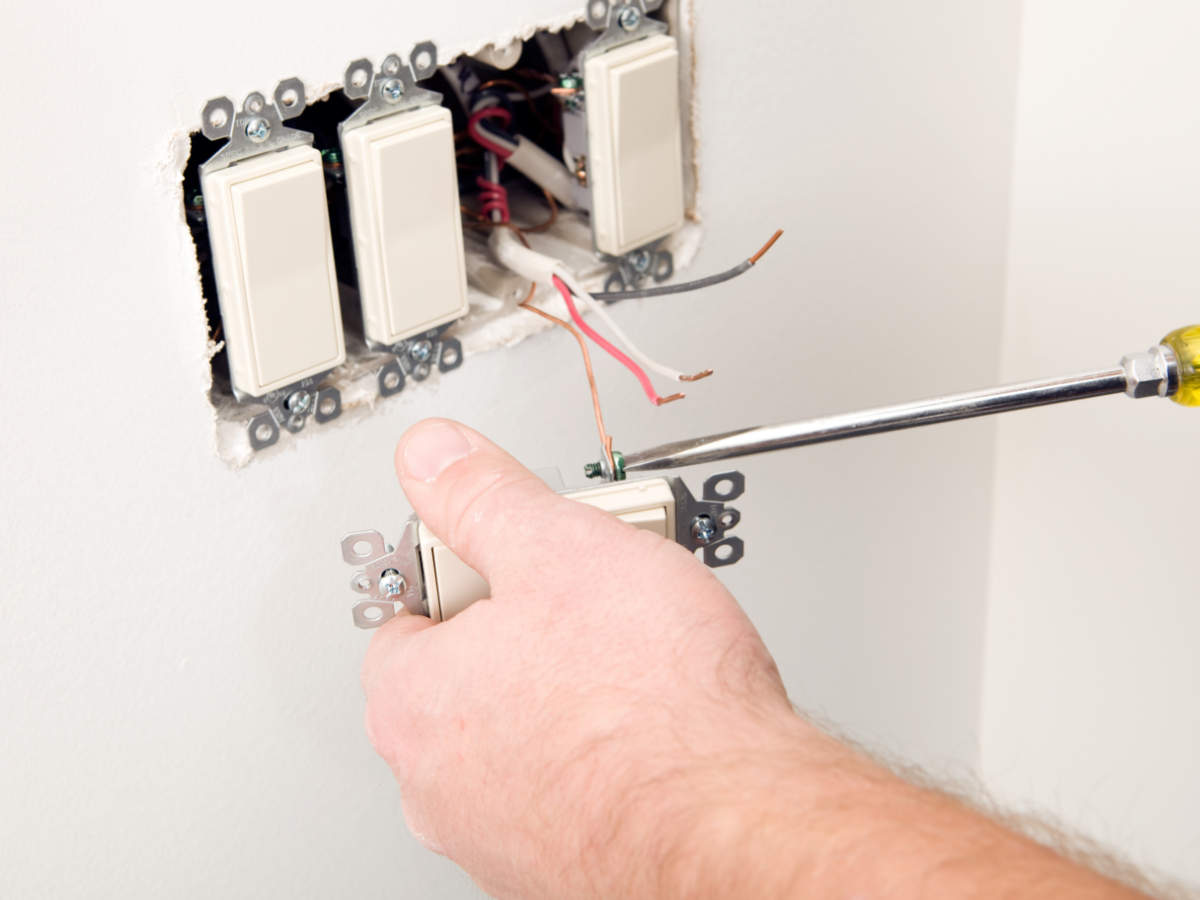 Lightning is an incredibly powerful force of nature, and while it’s fascinating to watch from a distance, it can wreak havoc on electrical equipment. Each year, lightning causes an estimated 17,400 fires across the U.S., with damages often extending beyond just the flames.
Lightning is an incredibly powerful force of nature, and while it’s fascinating to watch from a distance, it can wreak havoc on electrical equipment. Each year, lightning causes an estimated 17,400 fires across the U.S., with damages often extending beyond just the flames.
If you rely heavily on electronics, you should know how a single lightning strike can disrupt your home or business. This article explores the different ways lightning can damage your electronics and how you can protect it.
Key Takeaways:
- Lightning can cause power surges, overvoltage, and electromagnetic interference (EMI).
- Sensitive electronics and appliances are at the greatest risk.
- Grounding and surge protection are your best defenses against lightning damage.
Understanding Lightning Damage
Lightning can cause damage in several ways, both directly and indirectly. Whether it’s a power surge or electromagnetic interference, each form of damage can have devastating consequences for your electronics.
Power Surge
A lightning strike can cause a sudden spike in electrical energy, also known as a power surge. If lightning strikes a power line, that extra jolt can travel through the grid and into your home, damaging any device plugged in.
Devices with delicate internal components, like computers or routers, are especially vulnerable. These surges can fry sensitive circuitry in an instant, leaving your equipment beyond repair.
Overvoltage
Overvoltage occurs when the power supply exceeds the safe operating limits for your electronics. It can destroy internal components like capacitors and transistors.
The result? You’re left with dead devices, short circuits, or worse an electrical fire caused by overheating wires.
Direct Strike
Though rare, a direct lightning strike can obliterate electronics. The sheer heat and current involved in a direct hit are enough to melt or vaporize components, making the device completely useless.
Indirect Strike
Even without a direct hit, lightning can cause voltage sags or brownouts nearby. These small fluctuations in power may seem insignificant but can disrupt or permanently damage electronics. Nearby strikes can send dangerous currents into your electrical system.
Electromagnetic Interference (EMI)
Lightning doesn’t have to touch anything to cause trouble. Strikes can generate electromagnetic fields, interfering with your electronics. EMI can cause system crashes, data corruption, and in some cases, permanent hardware damage.
Transient Voltage
When lightning strikes, it can send brief, high-voltage pulses through power lines, known as transient voltage. This surge can travel into your devices, frying small but important components like integrated circuits, microprocessors, and memory modules.
How Lightning Affects Electrical Systems
 The impact of lightning on your electronics can range from mild disruption to complete destruction. Let’s look at how lightning affects various types of electrical equipment in your home.
The impact of lightning on your electronics can range from mild disruption to complete destruction. Let’s look at how lightning affects various types of electrical equipment in your home.
Impact on Consumer Electronics
Consumer electronics like computers, televisions, and routers contain sensitive integrated circuits that are highly vulnerable to power surges and spikes.
Signs of surge damage include devices shutting off unexpectedly, failure to power on, or even a burnt smell. Surge protectors can help but are not foolproof, especially against direct strikes.
Impact on Large Appliances
Large appliances, especially those with electronic control boards like refrigerators and dishwashers, can suffer significant damage from lightning-induced surges.
Appliances with motors, such as dryers or air conditioners, are also at risk, particularly after power outages, when voltage spikes occur as power is restored.
Impact on Electrical Wiring
A lightning surge can send dangerous amounts of voltage through your home’s wiring, potentially causing short circuits, overheating, or even electrical fires. Older wiring or homes with improper installation are especially vulnerable to this type of damage.
How to Protect Electronics from Lightning Strikes
 There are steps you can take to safeguard your valuable electronics from lightning. From surge protectors to proper grounding, these measures reduce the risk of lightning damage.
There are steps you can take to safeguard your valuable electronics from lightning. From surge protectors to proper grounding, these measures reduce the risk of lightning damage.
Bonding and Grounding
One of the most effective methods for protecting electronics is proper bonding and grounding. This process creates safe pathways for excess energy to flow harmlessly into the earth, keeping it away from your sensitive equipment. It also stabilizes the electrical potential in your building.
Surge Protection
Surge protectors are another line of defense. Installing these at critical points, such as your main electrical panel and individual outlets, helps to divert excess voltage away from your devices during a surge. While surge protectors may not completely prevent damage, they significantly reduce the risk.
Structural Lightning Protection
For those looking for added protection, consider installing lightning rods and conductive cables. These systems are designed to intercept a lightning strike and direct its energy safely into the ground, preventing it from reaching your home’s electrical system.
Call Mister Sparky When Lightning Strikes Your Florida Home
 Lightning strikes can cause significant damage to homes, especially when it comes to electrical equipment. While it’s tempting to make quick repairs, it’s important to have a professional evaluate the damage to avoid further issues.
Lightning strikes can cause significant damage to homes, especially when it comes to electrical equipment. While it’s tempting to make quick repairs, it’s important to have a professional evaluate the damage to avoid further issues.
Mister Sparky, Tampa’s on-time electrician, offers expert lightning damage evaluations, helping homeowners make informed decisions about repairs and insurance claims. Don’t risk unnecessary replacements, reach out to the pros who know lightning damage inside and out.
FAQs
Here are answers to some frequently asked questions about how lightning affects electronics:
Does a power surge happen every time lightning strikes?
No, not every lightning strike causes a surge, but if the strike hits a power line connected to your home, a surge is very likely.
Can surge protectors completely prevent damage?
Surge protectors help, but they can’t stop a direct lightning strike from causing damage. They reduce risk, but unplugging devices is the safest option.
Why do electronics sometimes work after a surge, but not for long?
Power surges can cause latent damage. Devices may work initially, but over time, the weakened internal components can fail.
Will home insurance cover lightning damage?
Many insurance policies cover lightning damage, but it’s important to check your specific coverage. You’ll want to ensure protection for both electronics and any structural damage caused by lightning.
Can lightning start a fire in my home’s electrical system?
Yes. Surges from lightning strikes can cause overheating in wires, which may lead to electrical fires, particularly if the wiring is old or faulty.
Final Thoughts
Lightning presents serious risks to your electronics, from power surges and overvoltage to electromagnetic interference. Unplugging devices, using surge protectors, and making sure your electrical system is up to code are all smart ways to protect your home.
Don’t let lightning damage your valuable electronics, take the proper precautions to safeguard your devices, and if lightning strikes, call Mister Sparky for a professional assessment.